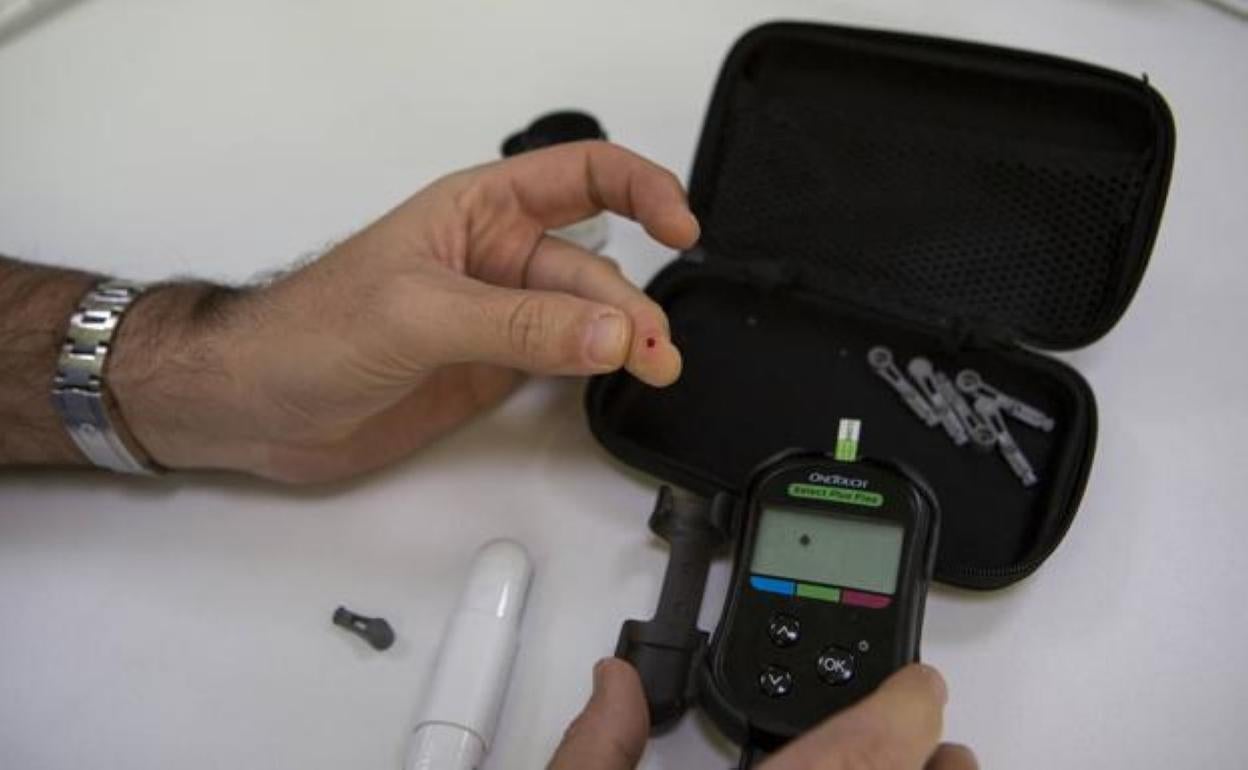

Sections
Highlight

ALFONSO TORICES
MALAGA.
Friday, 19 November 2021, 11:10
Diabetes is a serious health problem in Spain. The incidence of this illness is increasing in leaps and bounds and has reached dimensions that nobody had expected until recently. More than five million people in this country now live with diabetes, according to figures released in advance by the International Diabetes Foundation, which in less than a month will be publishing them in Atlas, the exhaustive worldwide study of the illness which it carries out every two years.
The figures for diabetes in Spain are worrying, says Antonio Pérez, an expert in endocrinology and president of the Spanish Diabetes Society (SED). The number of diabetics has increased by 42 per cent in just two years, according to data compiled by Atlas from 2019. This is an unprecedented trend and pace, as it is three times the speed that diabetes is spreading in the rest of the world. The growth is so rapid that in just two years it almost equals the expansion of diabetes expected in the next 25 years, until 2045, in the rest of the world.
The result of such a rapid spread is another sad record. Spain is now the second country in Europe with the greatest incidence of diabetics among the adult population, behind only Turkey. The information released by Atlas for 2021 estimates that one in every seven people over the age of 19 in Spain suffers from this illness; that is about 5.1 million, an enormous number which increases by about 400,000 new patients every year.
The rate in Spain, where 14.8 per cent of the population suffers from diabetes, is massive, even among neighbouring countries which share many of the ills of urban and developed societies and become risk factors for developing the illness. The Spanish rate is five points higher than the world average, four points above the European average and Turkey is only one per cent higher.
The problem is so great that the International Diabetes Association calculates that the costs associated with this illness in Spain amount to 13.43 billion euros.
Antonio Pérez believes the rapid expansion and high incidence of diabetes are due to the "lack of effective prevention strategies" by the health and educational administrations, combined with an increase in sedentary lifestyles, excess weight and obesity, and the proliferation of unhealthy eating.
Due to the lack of resources, 1.5 million people in Spain are not aware that they have diabetes.
Type 2 diabetes, which is the type that 90 per cent of patients have, has a strong genetic predisposition and it proliferates in older societies such as that of Spain, but there are also clear risk factors in unhealthy lifestyles such as a lack of exercise and diets which are excessively high in fats, sugars and ultra-processed foods, which lead to obesity.
Proof of the importance of these socioeconomic factors is that 40 per cent of diagnosed diabetics in Spain are obese and 80 per cent are overweight. Specialists estimate that an extra five to seven kilos maintained for several years doubles the possibility of adults suffering from diabetes.
However, the problems with health care in Spain as a result of the pandemic do not reduce the enormous incidence of the illness. Nor does the fact that over 30 per cent of those who have it have not been diagnosed. The lack of effective early detection programmes, and the lack of control and monitoring of almost every health condition by the authorities in the past year and a half, means that many people are not aware of their problem because diabetes is a silent illness until it causes a cardiovascular lesion, which is one of the most common complications.
Adult diabetes, if not diagnosed early and properly monitored by a doctor to avoid or at least delay the appearance of complications, is highly likely to result in serious damage, including death, if untreated or if the therapy is not applied consistently and rigorously. Neglected diabetes is the cause of heart attacks, strokes, kidney failure, blindness and leg amputations.
Patient organisations and medical societies say that in Spain there is a lack of resources and the national strategy against this illness needs to be greatly updated. This means there is insufficient prevention and early detection, inadequate health checks and diabetic education for patients and an unequal access to health care and medication in some regions.
To coincide with World Diabetes Day on 14 November, the president of the Spanish Diabetes Society called for "political leaders and health authorities in Spain to move from words to deeds, to improve the lives of people with diabetes and to prevent the illness in those with a high risk of developing it".
Publicidad
Publicidad
Publicidad
Publicidad
Esta funcionalidad es exclusiva para registrados.
Reporta un error en esta noticia

Debido a un error no hemos podido dar de alta tu suscripción.
Por favor, ponte en contacto con Atención al Cliente.

¡Bienvenido a SURINENGLISH!

Tu suscripción con Google se ha realizado correctamente, pero ya tenías otra suscripción activa en SURINENGLISH.
Déjanos tus datos y nos pondremos en contacto contigo para analizar tu caso

¡Tu suscripción con Google se ha realizado correctamente!
La compra se ha asociado al siguiente email
Comentar es una ventaja exclusiva para registrados
¿Ya eres registrado?
Inicia sesiónNecesitas ser suscriptor para poder votar.